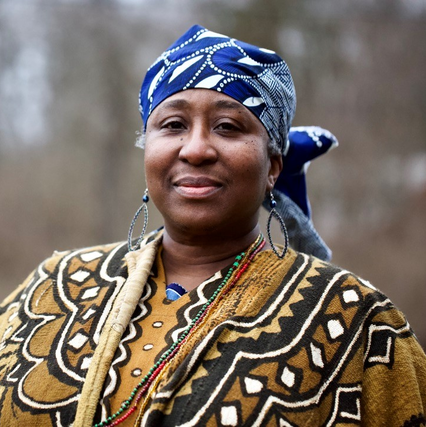How do Black poets use language (and breath/sound) to explore and re/create Black identities in ways that commemorate the past, acknowledge the present, and re/vision the future? Dr Maria Hamilton Abegunde’s AAAD-A 479 Contemporary Black Poetry: “Blacker than a Hundred Midnights” will help students read, listen to, and visit with Black poets/performers who challenge us to understand differently what it means to BE Black in the world, and what it means to claim, honor, and/or challenge the multiple narratives that re/shape those identities.
An interview with Dr. Maria Hamilton Abegunde, Assistant Professor in the Department of African American and African Diaspora Studies and poet, is below.
Why is it important for students to take this course?
Dr. Abegunde: That word importance. I stopped at that because everything is important to people for different reasons. What’s important to me is not important to other people. But it may be important for students to take this course if they want to understand how black people explore and live their identities. And for me, one of the best ways to do that is through the creative arts.
Why does this course fit the theme of this year’s Themester?
Dr. Abegunde: Because the theme on identity and identification speaks exactly to how contemporary Black poets are redefining their identities, particularly through words and performances, and the contexts in which they live. They’re doing this while not forgetting Black poets of the past, and also being able to draw on histories, some of which students may or may not know.
What do you hope people learn from your class and more importantly, what parts of the course would you highlight?
Dr. Abegunde: What I want people to learn is that being Black and Black-being are powerful and dynamic and have reshaped the world through, sometimes, a single sound.
What do I want to highlight about the class? Everything! The class is dynamic. We had such a great time last semester just being in the presence of poets and language, and words and sound and movement.
I think one of the great things, is being able to have contemporary poets visit the class virtually or in-person and just listen because poetry is meant to be read [out loud]. There’s something to being able to sit and listen and not be required all the time to respond. What I want you to do is to come and appreciate the language of the course, and the sound of it, and the movement, and the history, and being able to also pay attention to how you make those connections. What are we learning from the poem? What does it teach us about the history, and what is it teaching us about ourselves and our place in the world? And particularly if you are a Black and brown student. But even if you are not, and sometimes even especially more, what is it teaching you and helping you understand about Black and brown people in the world?
What type of student would you encourage to take this course?
Dr. Abegunde: That’s also a very interesting question to ask because I believe that students should take the classes that they want to take. However, for students interested in learning more about Black history, culture, or poetry performance in life through the words and lives of Black poets, they will particularly enjoy this class. This is a Black Studies class. It is spoken in and from the view and perspective of Black people. When you come, it’s not about you. It’s about life or the world; it could be about a flower that the Black poet is writing about but is there a difference in how that is approached? This is the course for the students who want to engage in these larger discussions about life and living and what it means to be Black and how even that is complicated by your region or your location in the world.
What, to you, is the most interesting aspect of this course? What, if anything, do you learn from teaching it?
Dr. Abegunde: The students are always the most interesting aspect of the course for me, particularly how they engage with guest poets and their works. There’s not a way in which you can say “this poem means this.” It’s not that there’s not a meaning or not even that the poet themselves has not written for a specific meaning, but the beauty of the work is that it is open to interpretation.
I’m learning all the time from students because I rely on students to introduce me to new music and things that I might not look at. That ability, again, is why it’s a contemporary Black poetry class. I encourage and invite students to bring their own knowledge and their own bearing on the work itself. I think sometimes people are surprised that Black people are writing poetry. They’re writing sonnets, they’re writing villanelles. They’re writing all of these amazing things in addition to free verse. It’s not people getting up there and just throwing things out or just putting things on. There is a love and beauty for the craft. I love for the students who are poets in the class to also share how they are crafting on the page what they are imagining. I invite them to bring their own words into the world and to be unafraid to share them with others.
View this course
View Themester 2022 courses



 The College of Arts
The College of Arts